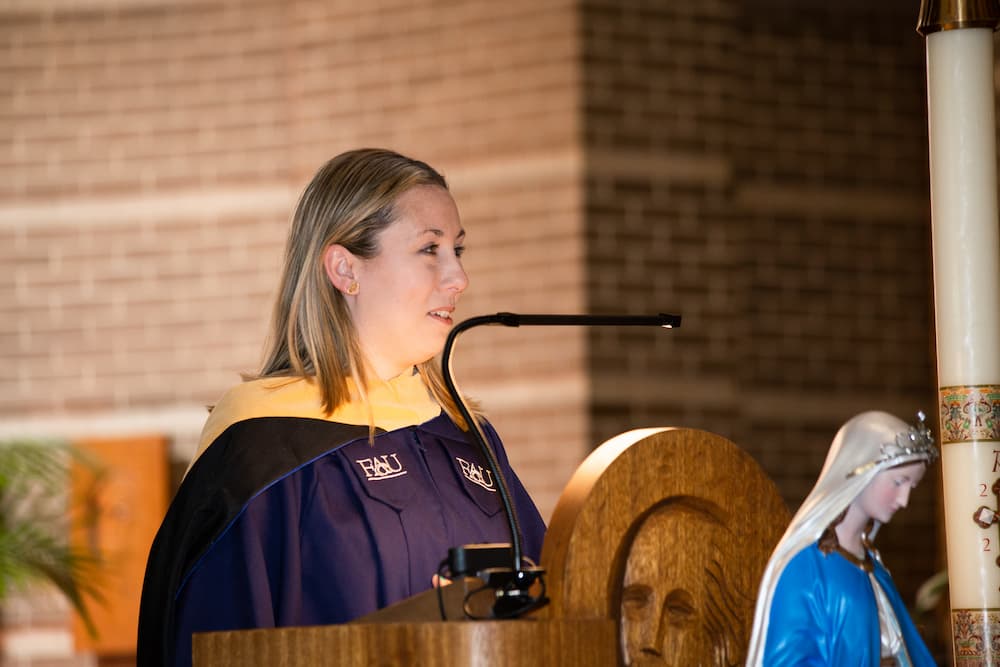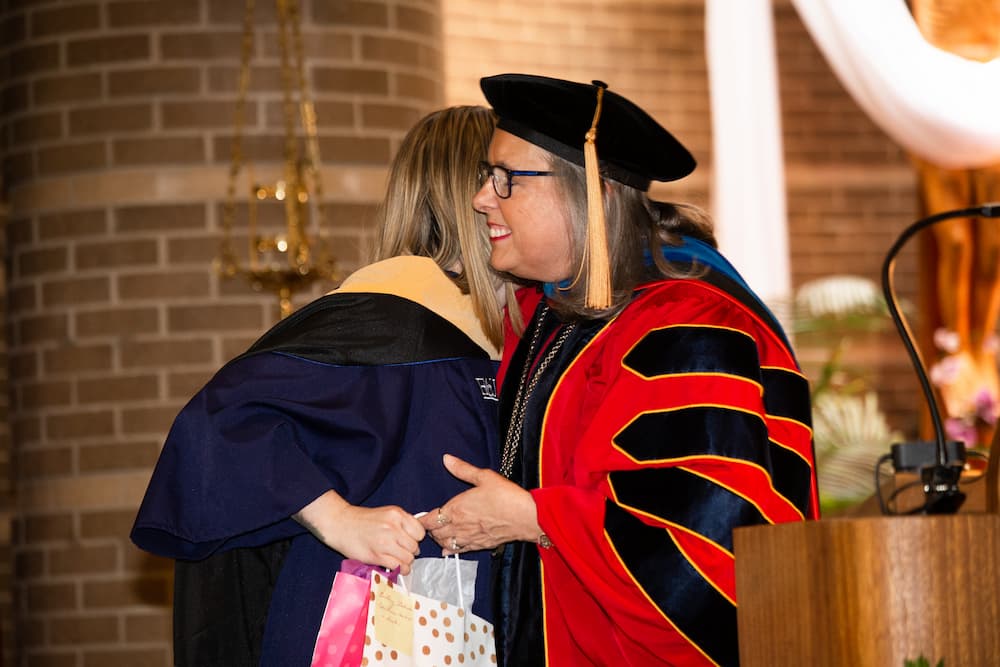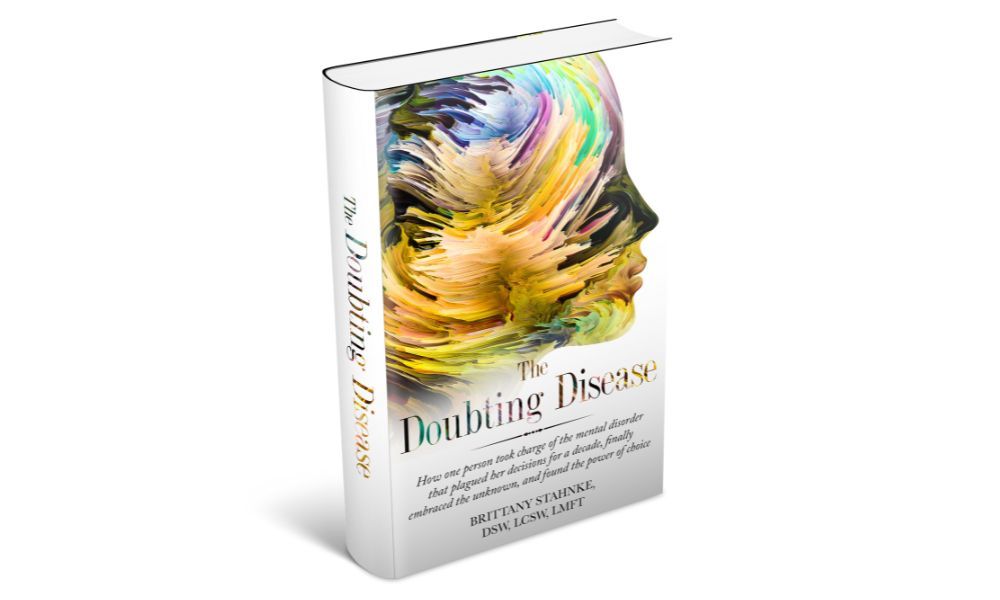Brittany Stahnke, DSW, LCSW, LMFT is adding to the conversation about obsessive-compulsive disorder (OCD) with her newly published book, “The Doubting Disease: How one person took charge of the mental disorder that plagued her decisions for a decade, finally embraced the unknown, and found the power of choice.”
Stahnke serves as an assistant professor of social work at the Newman University Colorado Springs location. Now a published author, Stahnke hopes to continue helping others through education.
The inspiration behind ‘The Doubting Disease‘
Years ago, Stahnke suffered extensively from her own struggles with OCD.
“I was a therapist at the time,” Stahnke explained. “But I found that even us therapists were not very understanding of what OCD actually looks like most of the time.”

Stahnke was misdiagnosed and struggled with pervasive thoughts, doubts and emotions, which took a debilitating toll on her personal life. She met with several mental health professionals over multiple years before they eventually came face to face with the beast at hand: OCD.
Outside of depression and anxiety, OCD affects more people than any other mental illness. According to the World Health Organization, it is one of the top 10 disabling disorders in the world, yet it is also one of the most misdiagnosed and misunderstood.
“OCD isn’t always what the media, television and all the portrayals that we have in the world show,” Stahnke said. “So as a licensed therapist and professor teaching about mental health, I wanted to help in expressing the gaps that we have in our knowledge — both as professionals as well as individuals.”
Educating others about OCD
“The Doubting Disease” is both an informational memoir of Stahnke’s personal experiences as well as an academic conversation regarding mental health.
The book serves to support not only those who suffer with OCD, professionals studying or treating OCD or families affected but it also “intends to support a larger conversation regarding mental health,” Stahnke wrote in her book. “It intends to formulate a conversation about the consequences of not only the illnesses themselves, but the lack of awareness and effective treatment of them.”
Stahnke said it’s likely that “everybody knows somebody who has OCD.” Learning the signs and symptoms beyond the stereotypes has the power to save a life.
“I wish somebody had saved mine,” she added. “Eventually they did, but it took hitting rock bottom and a lot of professionals that just had no idea what was happening.”
It intends to formulate a conversation about the consequences of not only the illnesses themselves, but the lack of awareness and effective treatment of them.”
Brittany Stahnke on her book, “The Doubting Disease”
An ever-growing passion and calling for social work
As long as Stahnke can remember, she has had a desire to help others. She took her first psychology class at the age of 14, and decided that helping others in an emotional, mental manner was where her strengths and interests lie.
“I think that we’re all kind of blessed in certain ways,” she said. “I think that my blessing in life was to be kind of born into something rather than having to search for something. I’ve always felt a calling to be there for people in their hardest times and in the times when other people tend to shy away.”
Although she started her work as a Newman professor just two years ago after earning her doctorate in social work from Florida Atlantic University, Stahnke won the esteemed 2022 Teaching Excellence Award this spring. Her student nominators raved about her unique approach to teaching” flexible but firm expectations and investment in student success.


In addition to her doctorate, Stahnke also has degrees in psychology, criminal justice and English. She has 10 years of experience working in areas of hospice, school social work, homelessness and mental health. Her research areas include suicide, end-of-life, marriage and OCD.
A published author
Stahnke has always been drawn to creative activities like writing and painting, and her mom believes she was meant to write. So when “The Doubting Disease” became a full-fledged writing project, Stahnke felt right at home.
Conceptualizing the book took Stahnke two years to complete, however, it took her 30 days of writing to complete “The Doubting Disease.”
“I was trying to kind of juggle my emotions while I was trying to create something that would matter,” Stahnke said. “It took a lot of strength to write certain aspects of the story, as it truly was a depiction of the worst moments of my life. I didn’t want it to be just about me, either — I wanted it to express a larger message. I think the book makes a very traumatic and emotional experience more concrete.”
“I’m also told it’s a very easy read,” Stahnke said with a smile. “It wouldn’t take extensive periods of time to get through it and my hope is that readers will learn a bit from it.”
Stahnke would like to thank her grandmother and her spouse for their edits and support throughout the process.
The book “The Doubting Disease” is available on Kindle, paperback and hardcover on Amazon.
Explore a degree in social work
Social work is not just a job, it is a helping profession rooted in dedicating oneself to continuous growth, learning, change and becoming the best version of yourself.

